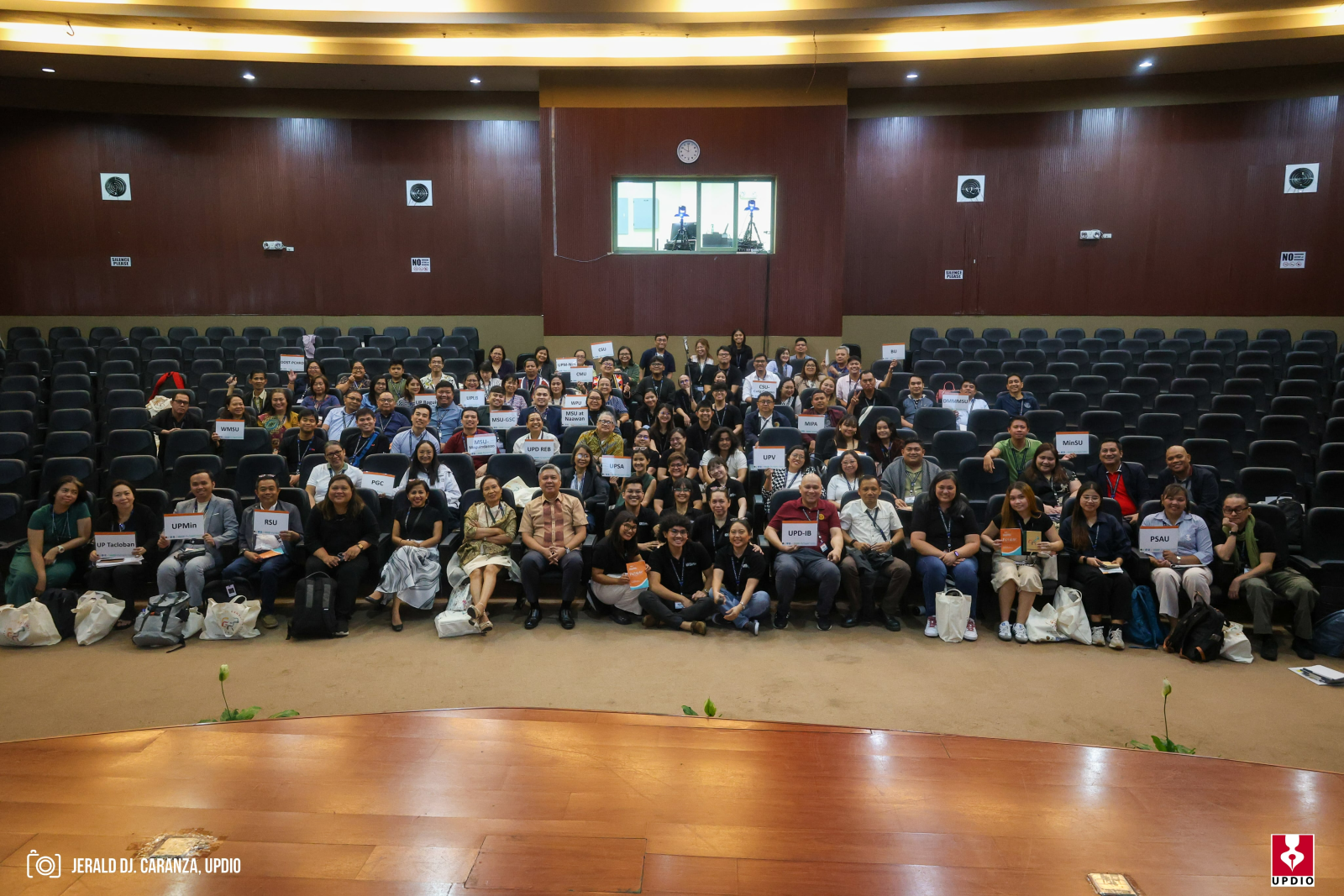A two-day symposium highlighting Filipino-led genomics research was recently held by the Filipino Genomes Research Program (FGRP) of the DNA Analysis Laboratory (DAL), based at the UP Diliman (UPD) Natural Sciences Research Institute (NSRI).
Held from June 10 to 11, at the Institute of Biology Auditorium, the FGRP Symposium 2025 with the theme Pagtanaw: Reflecting on the Journey and Shaping the Future of Inclusive Filipino Genomics, drew together more than 19 state universities and colleges (SUCs) and key institutional stakeholders engaged in the FGRP’s ethical, cultural, and scientific aspects.

UPD Chancellor Edgardo Carlo L. Vistan II acknowledged the vital support of the Department of Science and Technology—Philippine Council for Health Research and Development (DOST-PCHRD) and lauded the FGRP’s collaborative approach across academic and institutional lines.
“The FGRP aims to ensure that Filipino genomics research involves and represents Filipinos in both the national and international genomics research arena,” said Vistan. “One of the most significant objectives of the program is to ensure that the application of Filipino genomics in fields like forensics, anthropology, human biology, health, and medicine is appropriate and applicable to the Filipino population. This is best achieved through a nationwide network of collaborations like the one we have today,” he added.

Launched on 1 July 2019, the FGRP is comprised of three major projects. Project 1 is Filipino Forensic Genomics led by Jazelyn M. Salvador; project 2 is Filipino Genomes: History, Evolution, Origins, and Applications led by Program Director Frederick C. Delfin; and project 3 is Filipino Genome Regions to Help Resolve Child Sexual Abuse Cases led by Maria Corazon A. De Ungria, PhD.
The symposium highlighted the population-based research efforts of Projects 1 and 2. Collaborating researchers shared their field experiences on participant recruitment and sample collection. Research findings and preliminary analyses were presented and discussed with those directly involved in the program’s data collection and implementation.
The gathering marked the first tier of FGRP’s research validation process, during which program outputs were reviewed internally by contributors and institutional collaborators. In the subsequent phases, the FGRP will return to the communities where volunteers provided samples to share results, solicit feedback, and secure approval for dissemination, ensuring that the communities retain agency over the research outcomes derived from their participation.
Future directions were also outlined as the FGRP enters its second phase of implementation. Plans include expanding its collaborative reach and incorporating more Filipino ethnolinguistic groups in upcoming genomic studies.
Notable attendees included Saturnina C. Halos, PhD, founding head of DAL; current and former NSRI directors Elmer S. Estacio, PhD, Windell L. Rivera, PhD, and Jonas P. Quilang, PhD; as well as UP Mindanao Chancellor Lyre Anni E. Murao, a former university research associate at DAL; along with leaders from the FGRP’s research partner institutions from Northern, Central and Southern Luzon, Visayas, and Mindanao. Representatives from the research ethics committees of UPD and UP Manila, the Komisyon sa Wikang Filipino, the National Commission on Indigenous Peoples Central Office, and the Ministry of Indigenous Peoples’ Affairs, and DOST-PCHRD were also present.
